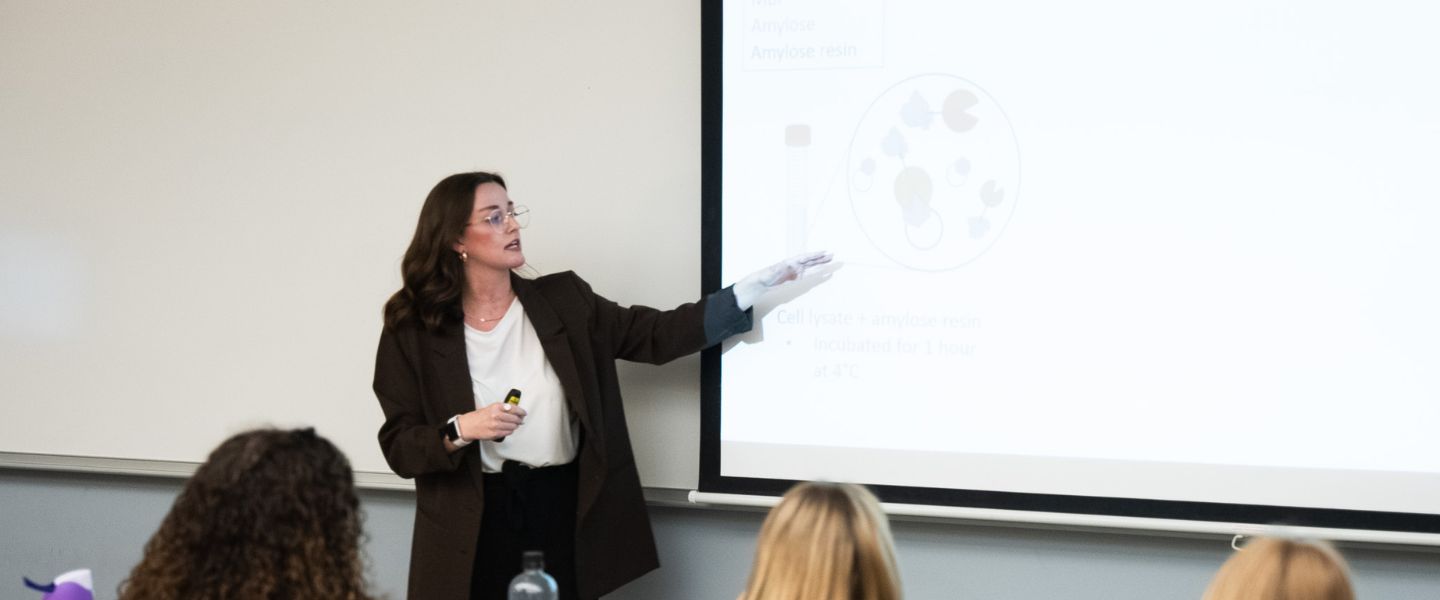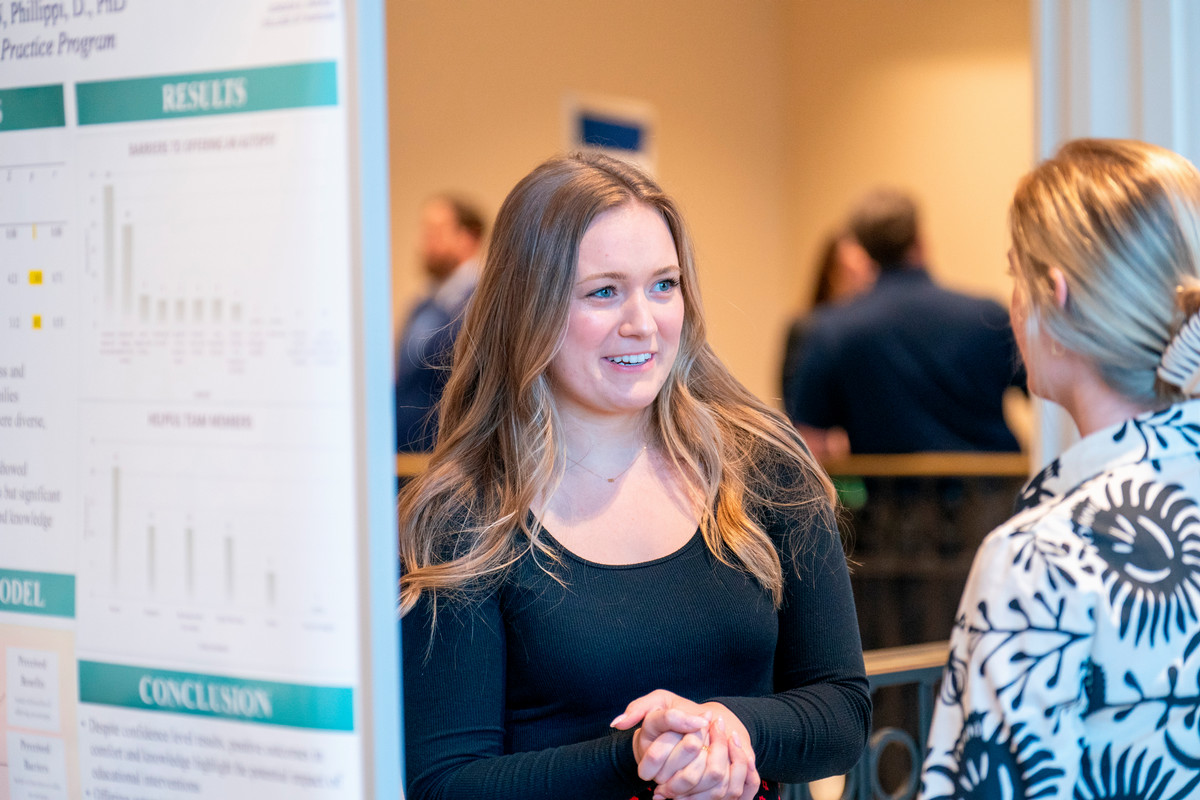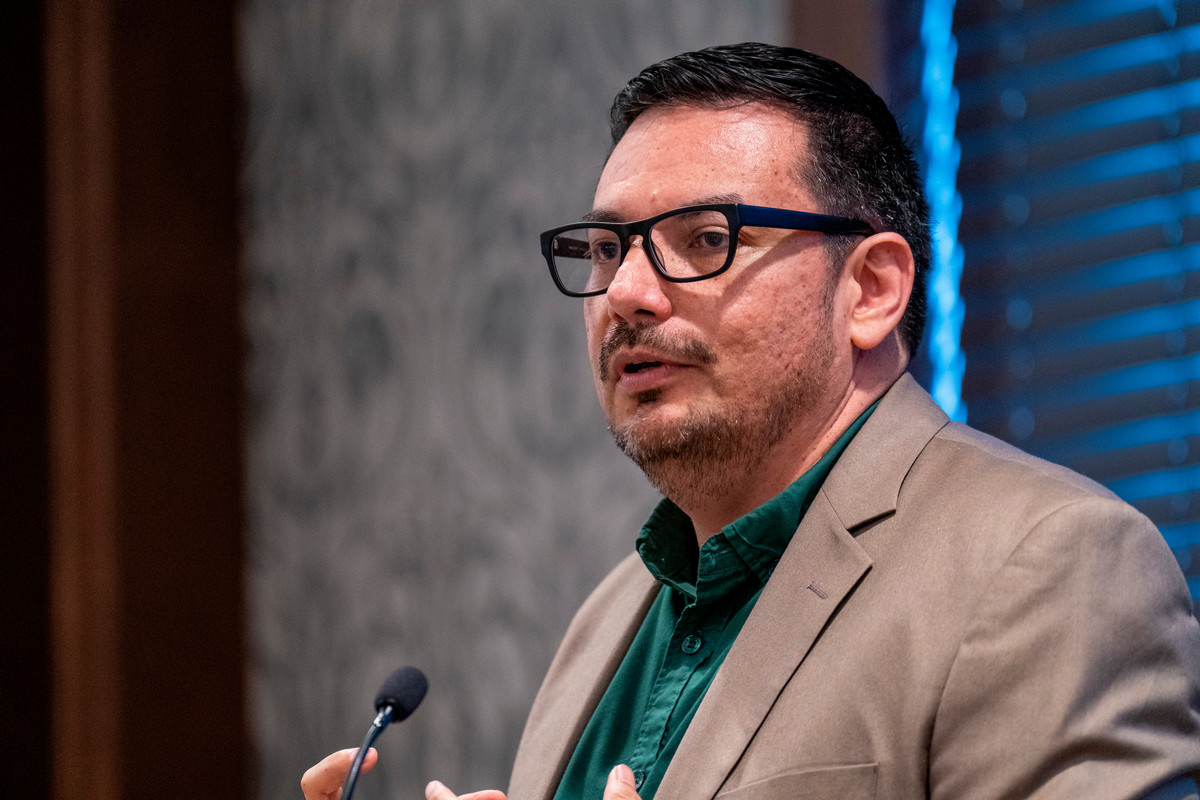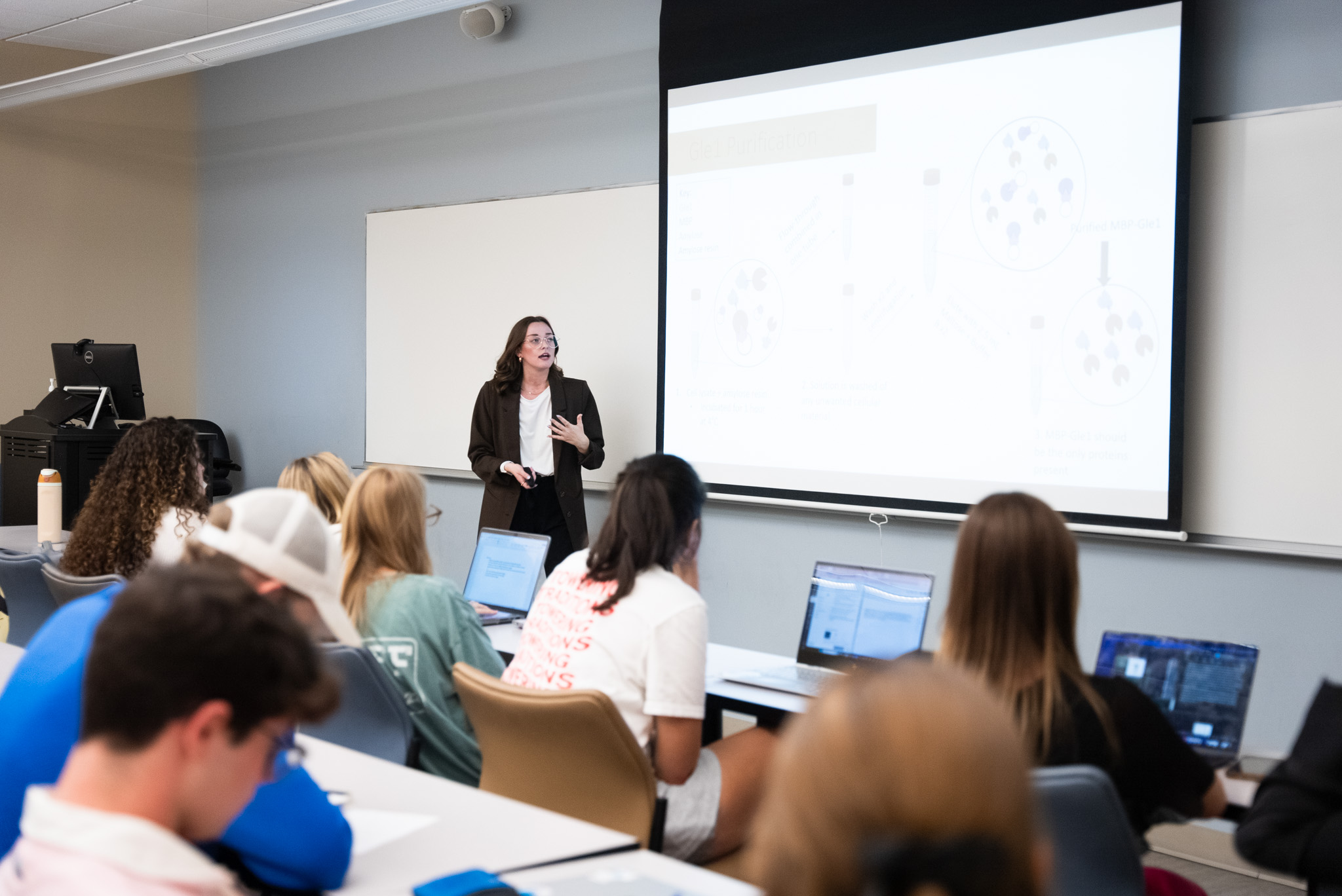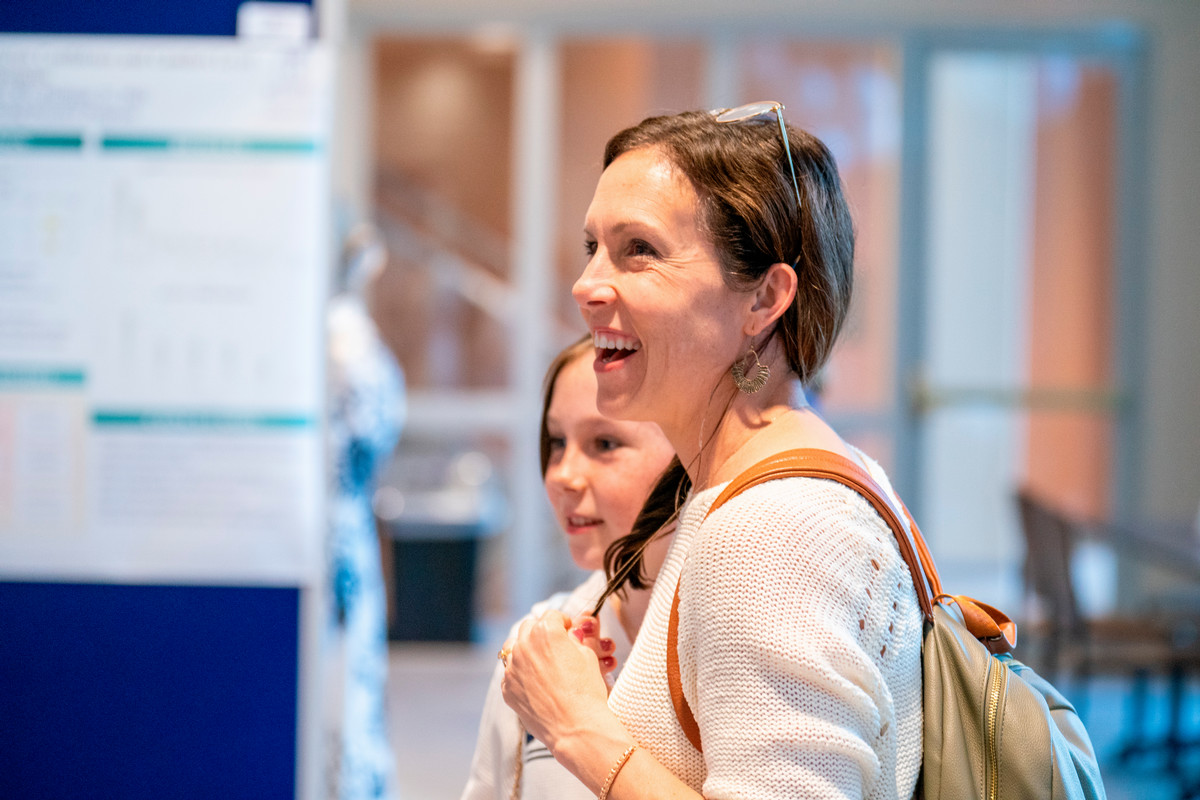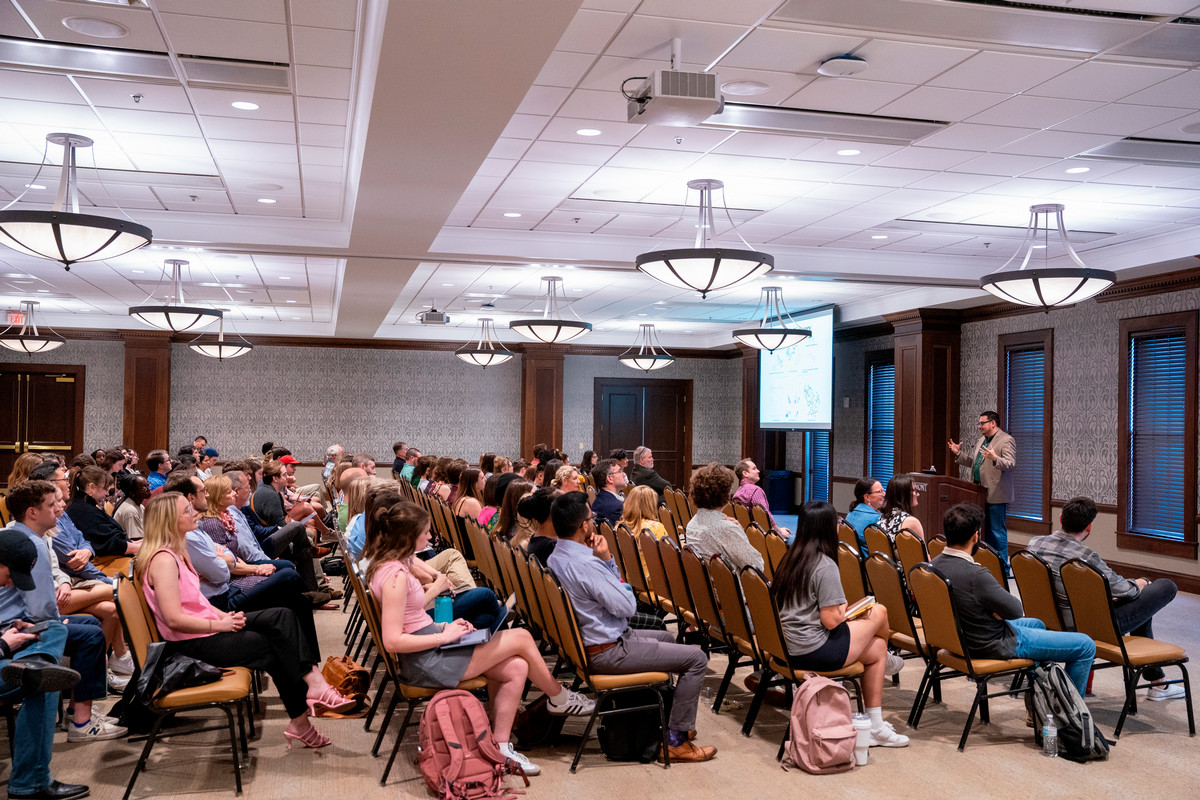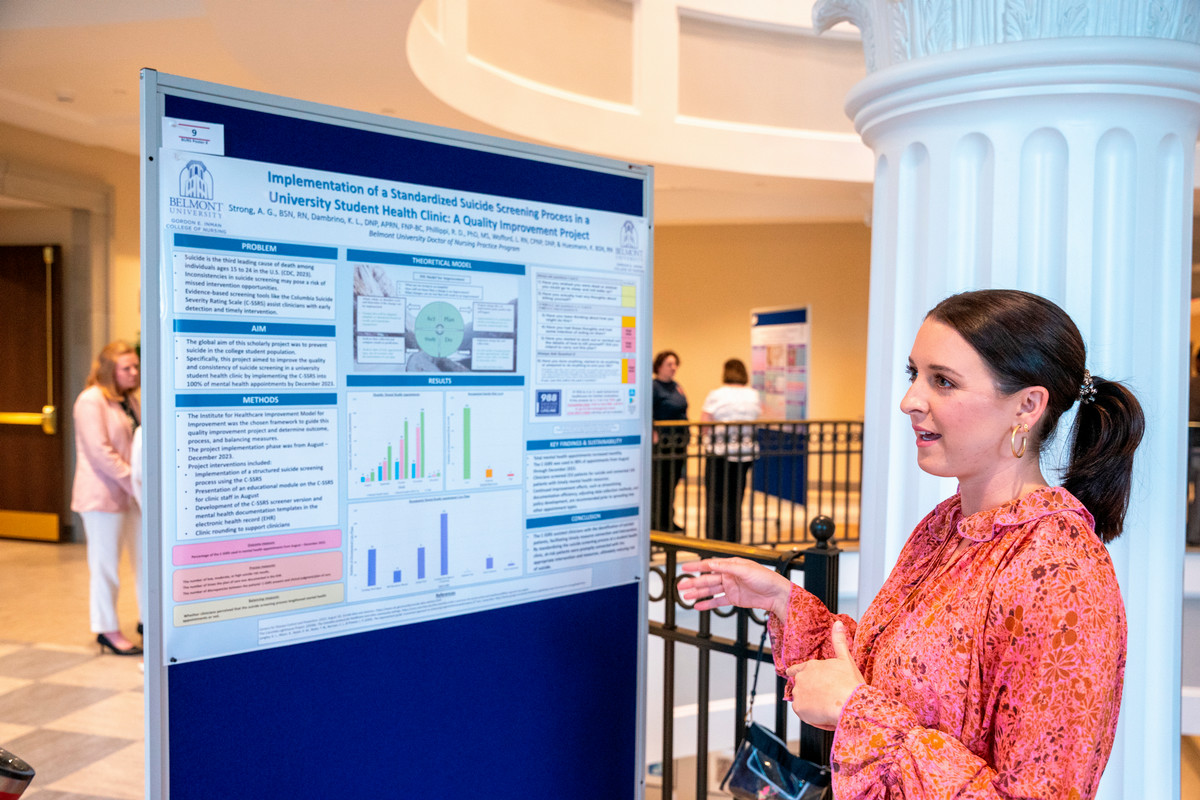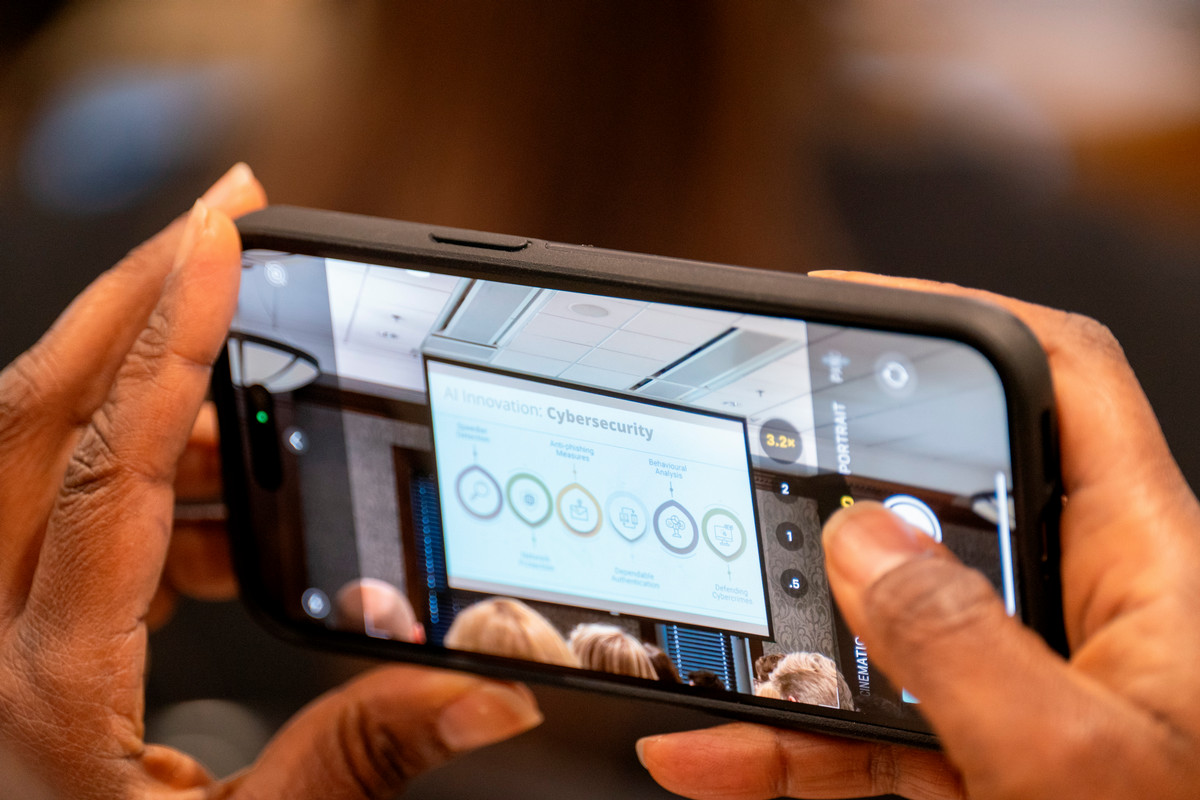Reimagined Programming Announced for 2025
Last week, Belmont hosted the 33rd annual Belmont University Research Symposium (BURS), a day where students share research they have conducted with faculty and peers. This year was a record-setter with 185 presentations, the most BURS has seen to date, and more than 355 student presenters. 
“Our students develop exceptional works of scholarship and creativity,” said CSM Assistant Dean Dr. Beth Bowman. “BURS gives them the incredible opportunity to present their work, and it is inspiring to see the ways that this symposium has grown and is going to continue to grow.”
BURS was founded in 1991 by Dr. Donald Ramage, the dean of CSM at the time, with only 40 students participating. The “U” in BURS originally stood for “undergraduate” before it was changed to “university” around 2008 to encourage graduate student participation as well. A centralized BURS administration was formed in 2021 to individualize the event schedule, offer students WELL Core credit for attending presentations and establish a searchable archive of past abstract submissions called the BURS Repository.
This year, nine colleges participated in BURS with 55 students delivering more than one research presentation. While graduate students have participated in BURS for years, the first-ever session dedicated to graduate research was held for the Doctor of Nursing Practice (DNP) program.
The Projects
For Addie Grace Strong and Allie Tyler, two student presenters, BURS was a way to not only hone their research and presentation skills, but also strengthen connection within the Belmont community.
 Strong, a third-year DNP student, researched how the implementation of the Columbia Suicide Severity Rating Scale (C-SSRS) at a university improved the screening process of at-risk students ending their lives. She concluded implementing a standardized suicide screening process, such as the C-SSRS, allowed for the prompt connection between at-risk patients with appropriate intervention and resources, ultimately reducing the risk of suicide.
Strong, a third-year DNP student, researched how the implementation of the Columbia Suicide Severity Rating Scale (C-SSRS) at a university improved the screening process of at-risk students ending their lives. She concluded implementing a standardized suicide screening process, such as the C-SSRS, allowed for the prompt connection between at-risk patients with appropriate intervention and resources, ultimately reducing the risk of suicide.
“What stood out to me the most about BURS 2024 was the level of engagement from peers and faculty with each project and presentation,” said Strong. “I had the opportunity to have meaningful conversations with many members of the Belmont community, both students and faculty.”
Tyler, a senior biochemsity major, coupled chemistry and biology to characterize a protein called GLE1 in the mRNA export process.
“Personally, I was immensely nervous the days leading up to BURS,” said Tyler. “But when I actually got up there to present, it wasn't as scary as I thought it would be. It was such an exciting feeling to present the research I worked so hard on and teach the audience about some really cool science.”
While Tyler does not have her sights set on a research-based career path after graduation, BURS still prepared her for her future by providing a platform to present her discoveries in a public setting.
“I will be working in the forensics industry conducting analyses on evidence casework found on crime scenes,” she explained. “I will have to testify in court to provide evidence towards my findings, something BURS helped prepare me for. After all, I will be essentially pitching my work to an audience, convincing them what I did was important and helpful.”
The Ongoing Debate Over Artificial Intelligence
To cap the day, Dr. Pablo Rivas of Baylor University gave a keynote address titled “The Dual Faces of AI: Fostering Innovation While Fighting Misuse,” where he discussed artificial intelligence’s revolutionary benefits and its present and potential dangers. The presentation was hosted by Belmont's Global Honors program.
Medicine is one field Rivas highlighted as an industry that is primed for an AI transformation, from predicting prescription dosages to revolutionizing the $15.4 billion spent each year on reporting and quality measurement. Rivas also mentioned the increasing implementation of AI across other industries including self-driving cars, blurred backgrounds and ambient noise reduction in virtual meeting apps, drones that limit human contact with harmful exposure to chemicals and algorithms that direct spam emails away from a primary inbox. 
Conversley, Rivas detailed the inefficiencies and hallucinations AI can exhibit, specifically with the learning language models that are prevalent in everyday contexts, such as Open AI’s ChatGPT 4.0. With the addition of simple distortions unseeable to the naked eye, these models frequently and incorrectly identify images and text. They can also be easily programmed to exhibit innate racial and gender biases, which Rivas demonstrated with various examples.
“Now let’s talk about the solution,” said Rivas. “It’s simple — we need a common framework that can span across cultures that will help enable companies, industries, government and regular people like us have AI that is safe and responsible.”
He likened this proposed framework to an orthopraxy, an idea that right action is as important as religious faith.
“This implies the aligning of AI with simple values of society: fairness, respect, accountability and transparency,” he explained. “If we adopt these core ethical standards, it will lead to public trust in these algorithms and a willingness to supply them with additional data, in turn offering us more information that we can use to make decisions and make our lives a little better every day.”
SPARK in 2025
As part of the keynote presentation, CSM Dean Dr. Thom Spence unveiled “SPARK 2025,” a rebrand of the BURS programming. SPARK —scholarship, performance, art, research and knowledge — aims to broaden academic and performance-based symposium participation to encompass even more programs across the University.
SPARK will be held April 16, 2025, a day dedicated to student work that will allow for students and faculty to attend presentations and support the Belmont community with greater ease.
More information about SPARK will be announced in the fall.

